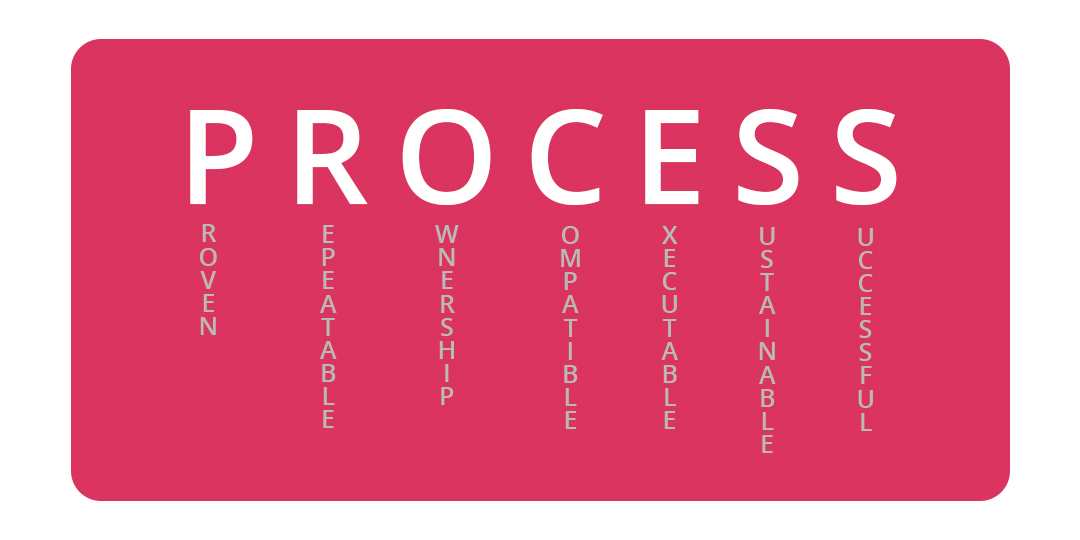Process & Workflow
The Importance of Process Development in a Creative Agency


There’s a reason McDonald's customers frequently visit their restaurants. When they walk through the doors, they know exactly what they’re going to get. McDonald’s created processes a long time ago and has been adapting them ever since.
Though their ice cream machines may break down from time to time and some menu items tend to come and go, McDonald’s is still working as efficiently as ever. More importantly, these processes help to establish brand identity so that things like a Big Mac are consistent no matter which location you visit.
Creative agencies have to work the same way. Regardless of the project, the processes you develop and put into practice should help your team work as efficiently as possible.
Incorporating these processes into your workflow will help you to become both consistent and successful. Developing processes will ensure that your agency’s work is reaching client standards and staying within budget.
In this article, we will explain what process development is, why it is important, and how creative agencies can use it to improve their businesses.
What is Process Development?

Process development is a lot more than simply creating steps to complete a series of tasks. Before you implement a process, you need to make sure you’ve gone through all the potential options to ensure you’ve landed on the best possible solution.
Regardless of the field in which it’s being implemented, process development is essential for meeting goals. Those goals could be project-related or organizational goals. A good process should be efficient, repeatable, reliable, and ensure that the final results are always consistent.
In addition to completing the task or project, good process development will incorporate a series of checkpoints along the way to keep everything in line and accurate. Whether it’s adding an additional layer of QA or developing a “preflight” checklist before publishing an asset or sending a deliverable to a client for review, these additional steps need to be included in a well-developed process.
7 Steps of P.R.O.C.E.S.S. Development

We love a good mnemonic device! The next time you want to make sure you’ve created the best plan for you and your team, keep these seven steps of process development in mind.
The easiest way to remember them is simple… just think of PROCESS:
Proven - This may take several cycles through to see real, hard data, but a good process should deliver proven results.
Repeatable - Sure, you’re going to have some processes to support ad-hoc tasks, but we are talking about the processes that can be repeated and implemented in everything you do for your clients.
Ownership - Knowing who is going to own this process and work on it day in and day out is important. After all, accountability is one of the core rules of execution. The process owner should have input on its successes and where it’s coming up short.
Compatible - Processes must be compatible with each and every aspect of the agency, and should support higher-level agency goals.
Executable - What’s the point in developing a process if there is no execution? Each step within the process must be realistic and executable.
Sustainable - When developing processes, many creative agencies overcomplicate them. Overly complex or complicated processes only frustrate or confuse team members and clients. Processes should not only make easier, but they should be sustainable and scalable.
Successful - If a process reduces the time spent on back-and-forth communication, streamlines work efforts, reduces errors, and keeps team members and client members on the same page, then you can call your process a real success.
Why is Process Development Important for Creative Agencies?
In every creative agency, there are so many moving pieces to complete any project. If steps or processes are ignored or overlooked just to improve the speed of distribution, then the quality of the content and deliverables will suffer in one way or another.
Let’s look at an actual example.
Assignment: A client asks their agency to create the marketing assets for a new product release.
Deliverables:
- Digital product brochure
- Email newsletter
- Social media posts
- Landing page
Turnaround time: 60 days
Now, this may not seem like much of an aggressive ask, but without a clear and reliable process, this project can quickly get out of control.
Here are some questions to ask when developing the right process to support this project:
- What is the timeline for deliverables?
- What format is required for each deliverable?
- When do they need to be approved by the client?
- Who are the approvers?
- Who are our resources, and who is doing what?
- What do we need to do to test the campaign before launch?
Can you imagine if the last bullet is missed and no one checks to see if the branding and theme of the entire campaign are consistent throughout all the deliverables? This is a recipe for disaster.
Many creative agencies are excited to work on new projects and campaigns as they allow them to use their creativity and build something. However, in amidst the excitement, asking these key questions is often overlooked. As a result, excitement quickly fades into anxiety.
Therefore, by developing the right processes and systems, creative agency team members can focus on what they do best: creating.
How Rindle Can Help with Process Development
Not only can Rindle be used as a tool to keep everyone accountable for their tasks within a project, but it’s organized so that the processes you developed to complete the assignment are stored within each and every project.
Along with giving you the platform to house your projects and the processes you’ve created, Rindle also does most of the work for you. There is a number of templates specifically designed for agency projects, which include:
- Content Marketing
- Client Onboarding
- Employee Onboarding
- Marketing Campaigns
- Marketing Requests
With Rindle, you can say goodbye to the days of things slipping through the cracks. Visit Rindle for a free trial today and become a more process-oriented agency tomorrow.